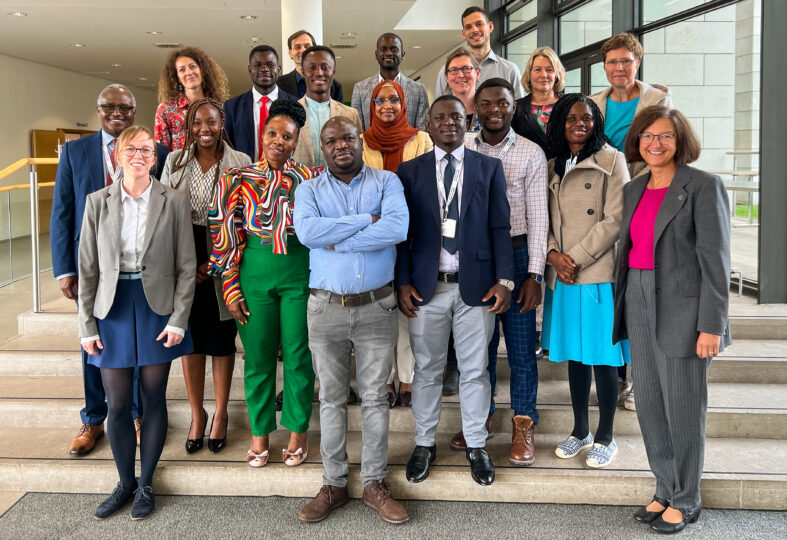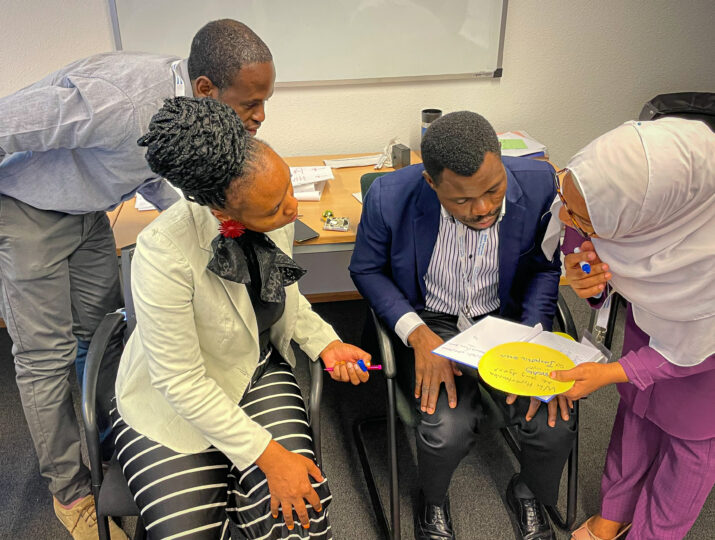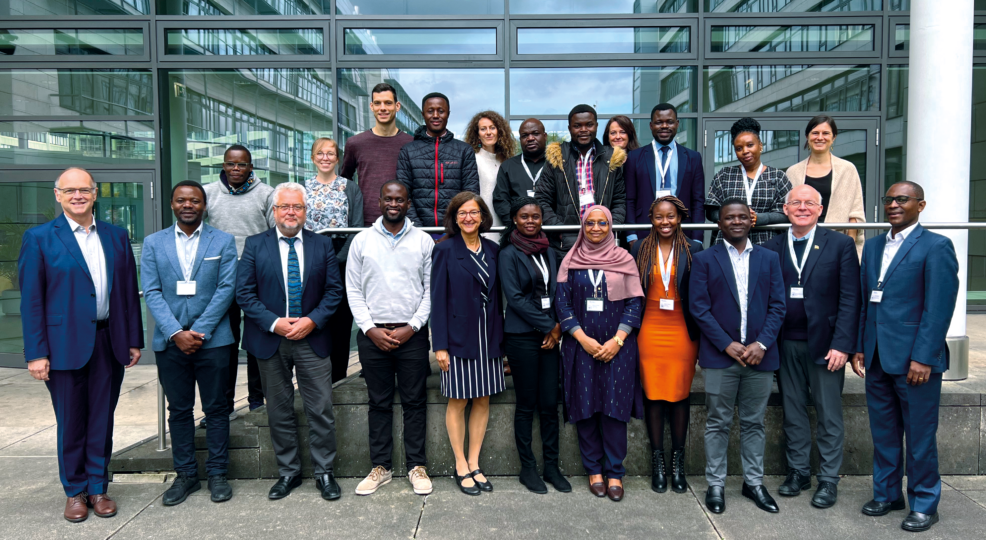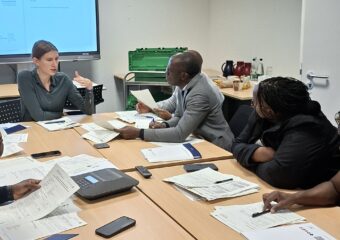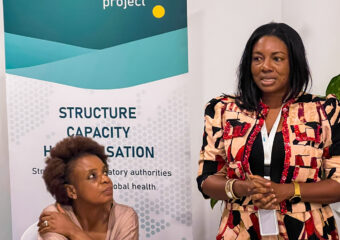High Interest in the PharmTrain2 Fellowship: A Tailor-made Contribution to the Drug Safety of Biosimilars in Africa
Trainings, hands-on experience in the assessment of biosimilars, and exchange between regions and continents are the focus of the first study visit of the PharmTrain2 Biosimilar Fellows at the Federal Institute for Drugs and Medical Devices.
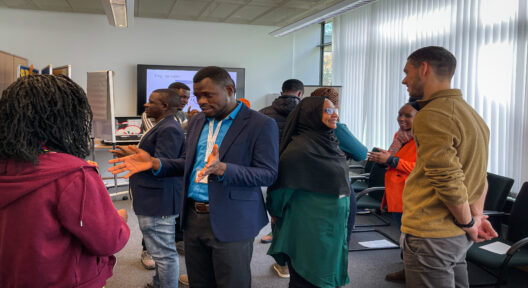
Biosimilars and their importance for the African Continent
Biotechnologically manufactured medicines are becoming more and more important, especially for the treatment of cancer, diabetes, and viral diseases. These products are often very expensive due to their complex development and manufacturing processes. However, after a certain period, these products may be emulated. These imitations, known as biosimilars, are highly similar to the original medicine in structure and function. Yet, they may slightly differ as they are produced using living organisms. Biosimilars are generally less complex to develop, making them more affordable. Their availability is crucial for resource-limited healthcare systems in Africa, particularly given the significant rise in cancer and diabetes cases on the continent in recent years.
Biosimilars must adhere to strict safety and quality standards. Their evaluation requires specific expertise from National Medicines Regulatory Authorities (NMRAs), as they are similar but not identical to the original products. Currently, a lack of expertise in African NMRAs poses a challenge. Therefore, there is growing interest in harmonising the evaluation of biosimilars and acquiring respective expertise. Biosimilars have been prioritised for the new, centralised evaluation process by the African Medicines Agency (AMA) to facilitate access to effective, safe, and high-quality products.
Key Features of the Biosimilar Fellowship
Following the highly successful pilot workshop on biosimilar assessment in 2021/2022, a new scholarship programme on biosimilar assessment (biosimilar fellowship) was integrated into the second phase of the GHPP programme within the PharmTrain2 project. Ten fellows from partner NMRAs of Ghana, South Africa, Tanzania, and Zimbabwe were selected from a large pool of applicants based on objective criteria. They are members of the Food and Drugs Authority (FDA) Ghana, Medicines Control Authority of Zimbabwe (MCAZ), South African Health Products Regulatory Authority (SAHPRA) and Tanzania Medicines and Medical Devices Authority (TMDA).
The fellowship began with an online kick-off event in May 2023. Through regular online trainings provided by experts and an annual workshop at the Federal Institute for Drugs and Medical Devices (Bundesinstitut für Arzneimittel und Medizinprodukte; BfArM), fellows expand their knowledge of biosimilars and enhance practical skills for their evaluation. The fellowship is based on the ‘Train the Trainer’ principle, which means that participants are trained to become trainers themselves. This aims to multiply the knowledge through South-South collaboration and to ensure sustainability. Another means for achieving sustainability is the development of a Training Manual by the fellows in collaboration with BfArM experts and the project team. It will cover the scientific-regulatory foundation for the assessment of biosimilars, making these training contents accessible in the long term.
First Workshop at the BfArM
From mid-October 2023, fellows spent three weeks at the BfArM. In addition to hands-on training on a real dossier, expert talks, and effective networking among each other and BfArM experts, there were four special highlights:
- Hiiti Sillo from the World Health Organization (WHO) spoke at the opening event about the importance of promoting regulatory structures and competencies worldwide. He congratulated the fellows on participating in this programme.
- By virtually participating in sessions of various committees at the European Medicines Agency (EMA), the colleagues gained valuable insights into drug regulation in the European Union (EU).
- During a multi-day didactic and methodology training, fellows demonstrated their motivation to enhance their training skills.
- A symposium on “Regulatory Landscapes in Africa, the EU, and Germany” with international speakers provided a comprehensive overview of developments in drug regulation in Africa. The speakers were Farai Masekela, Chair of the African Committee for Evaluation of Medicines (EMPC-TC), Dr Murray MacLumpkin and Dr David Mukanga from the Bill & Melinda Gates Foundation, as well as Dr Harald Enzmann, Chair of the European Committee for Human Medicines[1], and Professor Dr Werner Knöss, Vice President of the BfArM. Interesting discussions about common goals, opportunities, and challenges for the future of drug approval in Africa and Europe concluded this event.
Foot note
[1] Chair of the Committee for Medicinal Products for Human Use (CHMP) of the European Medicines Agency

